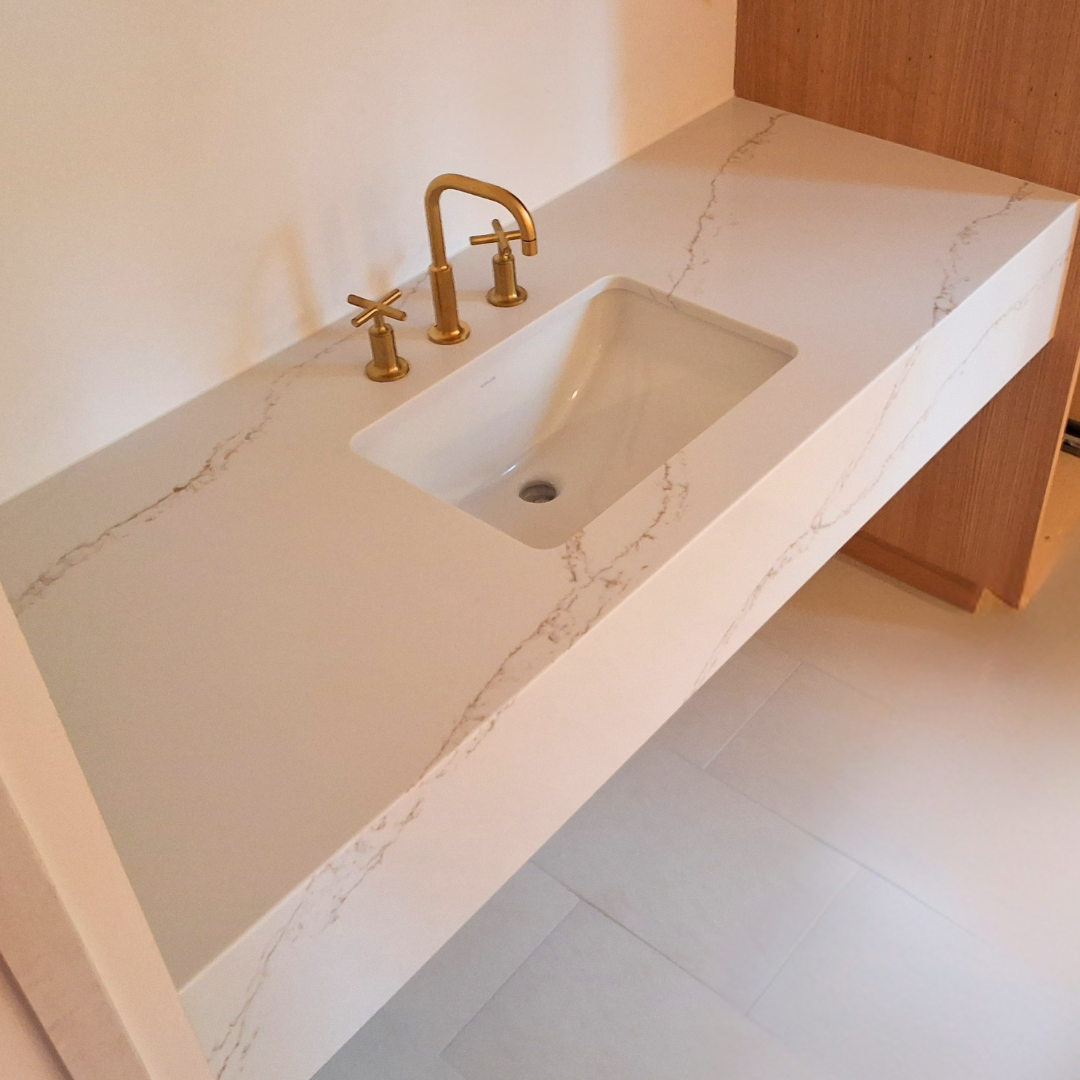Choosing the Right Stone for Your Space
A Guide to Natural vs. Engineered Stone
When it comes to selecting the perfect stone for your home, the decision can be overwhelming. With a myriad of options available, understanding the key differences between natural stone and engineered stone is crucial. Let's delve into the world of these two popular materials, exploring their unique characteristics and ideal applications.
NATURAL STONE: TIMELESS ELEGANCE
Natural stone, such as marble, granite, and quartzite, is derived directly from the earth. Its unique veining, color variations, and natural beauty make it a sought-after choice for homeowners.
Highlights of Natural Stone:
Unique Beauty: Each slab is one-of-a-kind, offering distinctive patterns and colors.
Durability: Known for its strength and longevity, natural stone can withstand heavy use.
Timeless Appeal: Its classic elegance never goes out of style.
Considerations of Natural Stone:
Porosity: Certain types, like marble, are more porous than others, requiring regular sealing.
Potential for Damage: It can be susceptible to scratches and chips, especially in high-traffic areas.
Higher Cost: Natural stone often comes with a premium price tag as you have the option to source exotic stones from around the world.
Ideal Applications:
Kitchens: Granite is a popular choice for countertops due to its durability and heat resistance.
Bathrooms: Marble adds a touch of luxury to vanities and shower walls.
Fireplaces: Limestone and marble create a warm and inviting ambiance.
ENGINEERED STONE: MODERN MARVEL
Engineered stone, a man-made material, combines natural stone particles with resins and pigments. This innovative process results in a durable and visually appealing surface.
Highlights of Engineered Stone:
Durability: Engineered stone is highly resistant to scratches, stains, and heat.
Low Maintenance: It requires minimal upkeep, making it a practical choice, without regular sealing.
Uniform Appearance: Consistent color and pattern throughout the slab.
Wide Range of Colors and Styles: Offers a vast selection to suit any design aesthetic.
Considerations of Engineered Stone:
Less Natural Look: While it can mimic the appearance of natural stone, it lacks the organic beauty.
Potential for Fading: Over time, it may lose its color intensity, especially when exposed to direct sunlight.
Ideal Applications:
Kitchens: Engineered quartz is a popular choice for countertops due to its durability and stain resistance.
Bathrooms: It can be used for vanities, shower walls, and flooring.
High-Traffic Areas: Its durability makes it suitable for busy spaces like entryways and mudrooms.
WHICH ONE IS BEST?
Ultimately, the best choice for your space depends on your personal preferences, lifestyle, and budget. Consider factors such as durability, maintenance requirements, and aesthetic appeal when making your decision.
By carefully weighing the highlights and considerations of both natural stone and engineered stone, you can select the ideal material to elevate your home's interior.
Need help choosing the perfect stone for your project? Contact us today to schedule a consultation with our experts.





